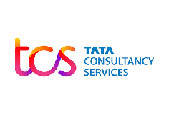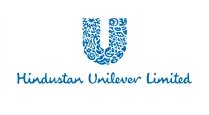Programme
Overview
The BBA Program offered by VPSM will be of 3 years duration and shall be spread over 6 semesters of six months each. Each semester will have six courses (subjects). Each of these courses will consist of 30 hours of classroom teaching. The students shall spend at least about 100 hours on pre and post-class working – which will consist of the textbook and additional readings, case studies, discussion on project work/assignments, preparation of quizzes, etc. One 30 hours course will be considered as a 3 credit course (that is, 10 hours for 1 credit). Students will have to complete 108 hours of classroom credits to become eligible to be a graduate of the school.
Eligibility
To be eligible to receive an invitation from VPSM to join its BBA program, a student must have secured a minimum of 75% in SSC and 70% in his/ her HSC examinations.
Consistency of academic performance and participation in extracurricular activities are also important criteria for receiving the invitation from VPSM. Participation at a School / State / University / College level extra-curricular activities will be rewarded with additional marks. The candidate must necessarily provide evidence of participation.
A candidate must necessarily provide evidence of participation.
A candidate’s admission will be based on all a fore mentioned parameters and not just academic performance.
Fees Structure
2025-26
INR 6,50,000/- Per Year
Program
Highlights
The two important factors that distinguish the VPSM BBA Program from the rest are its personalized learning experience and the six-month project with the industry. The course structure consists of the core courses that will be compulsory for all the students and electives to be chosen by the students as per their career aspirations. These choice-based electives shall offer a personalized learning experience while the industry project will help them understand the functions of the industry better by getting hands-on on the job experience.
Program
Outcomes
- PO1 Students will demonstrate maturity, professionalism and team working skills, they will have general idea of operations in business.
- PO2 Student will have a broad body of knowledge in business management concepts, current practices in a global business environment and emerging technologies to support, sustain and innovate business.
- PO3 Student will have understanding of business functions, developing critical and analytical thinking abilities, development of interpersonal skill, providing global perspectives and developing entrepreneurship acumen
- PO4 Students will have understanding of ethical and sustainable business practices, demonstrated sensitivity to social, ethical and sustainability issues, will have understanding of social cues and contexts in social interactions
- PO5 Students will have knowledge of computer hardware and software including Office applications for processing numerical and non-numerical data, creation and maintenance of documents, data management, preparation of presentations and email communication
Program Specific
Outcomes
- Student will acquire conceptual clarity of carious Functional Areas of business, will understand the ecosystem of start-up and will have ability to create business plan
- Student will be equipped to analyse various functional issues affecting the organization, will be able to derive at impactful strategies for development of the organization
- Student will have knowhow to do data analysis and interpret the data for decision making and will demonstrate the ability to develop frameworks to reflect unbiasedly on specific business contexts
- Student will acquire effective skill to communicate effectively both verbal and written communication, they will be able to work in groups, will have understanding of social interactions
- Student will develop Ethical Practices and Imbibe Values for Better Corporate Governance, will demonstrate understanding of sustainability related concerns in varied areas
- Student will be able to analyse Global Environment and its Impact on Business
Subject List /Course list
Semester Wise
BBA (2024-2027)
SEMESTER I EXAMINATION
| Semester | Course Code | Course Name | Course Credit |
| I | 2419BBA1T1 | Principles of Management | 3 |
| I | 2419BBC1T2 | Business Communication-I | 2 |
| I | 2419BBC1T3 | Introduction to Financial Accounting | 3 |
| I | 2419BBC1T4 | Business Mathematics | 3 |
| I | 2419BBM1T5 | Organizational Behaviour | 3 |
| I | 2419BBV1T6 | Indian Vision for Human Society (IKS) | 2 |
| I | 2419BBS1T7 | Technology for Managers | 2 |
| I | 2419BBI1T8 | Foreign Language (German) | 2 |
SEMESTER II EXAMINATION
| Semester | Course Code | Course Name | Course Credit |
| II | 2419BBC2T1 | Micro Economics | 4 |
| II | 2419BBC2T2 | Principles of Marketing | 4 |
| II | 2419BBC2T3 | Cost & Management Accounting | 4 |
| II | 2419BBV2T4 | Environmental Science & Sustainability | 2 |
| II | 2419BBSI2I1 | Basic Excel & MS Office | 2 |
| II | 2419BBU2T5 | Leading through life skills | 2 |
| II | 2419BBA2T6 | Basics of Machine Learning | 2 |















